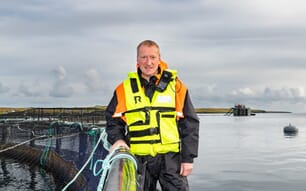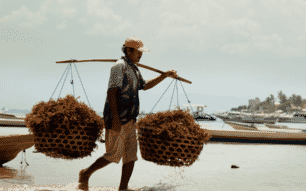
Pshenichnov was preparing to travel to Hobart, Australia, for the annual meeting of the Commission for the Conservation of Antarctic Marine Living Resources (CCAMLR) when he was arrested in his hometown in Russian-occupied Crimea, according to reporting by The Guardian*.
Antarctic krill (Euphausia superba) are increasingly used as a partial substitute for fishmeal and fish oil in aquaculture feeds. While trials suggest several health benefits of krill inclusion in diets, many stakeholders continue to call for limits on krill fishing in the Southern Ocean. In 2024, the fishery landed 0.5 million tons, making it the largest by tonnage caught in the Southern Ocean.
A translation of a Russian investigative document seen by The Guardian describes Pshenichnov as a “citizen of the Russian Federation” who “defected to the enemy’s side” by assisting Ukraine’s delegation to CCAMLR and advancing proposals that would restrict krill harvesting, allegedly harming Russia’s economic interests.
Ukraine’s ambassador to Australia, Vasyl Myroshnychenko, told delegates he was “profoundly shocked” by what he called an illegal incarceration and urged CCAMLR members to condemn Moscow’s actions. Australia said it was “gravely concerned,” while the UK called for the release of arbitrarily detained civilians.
The embassy of Ukraine in Australia and New Zealand wrote on their Linkedin page, “Pshenychnov has been engaged in CCAMLR-related research since 1983 and, from 1994 to 2025, has participated in CCAMLR activities exclusively as a Ukrainian scientist. He has never represented any other country. While staying with family in temporarily occupied Crimea, he was forced to accept a Russian passport.”
The arrest comes as CCAMLR again weighs proposals for a marine protected area (MPA) around the Antarctic Peninsula and tighter spatial management of the krill fishery – efforts that have repeatedly been blocked by Russia and China in recent years. A 2025 study in Proceedings of the National Academy of Sciences warned that the commission’s failure to renew spatial catch limits for the krill fishery in 2024 has heightened ecological risks and underscored the need for new protection measures in the region.
*The full article, by The Guardian’s Karen McVeigh, can be read here.



